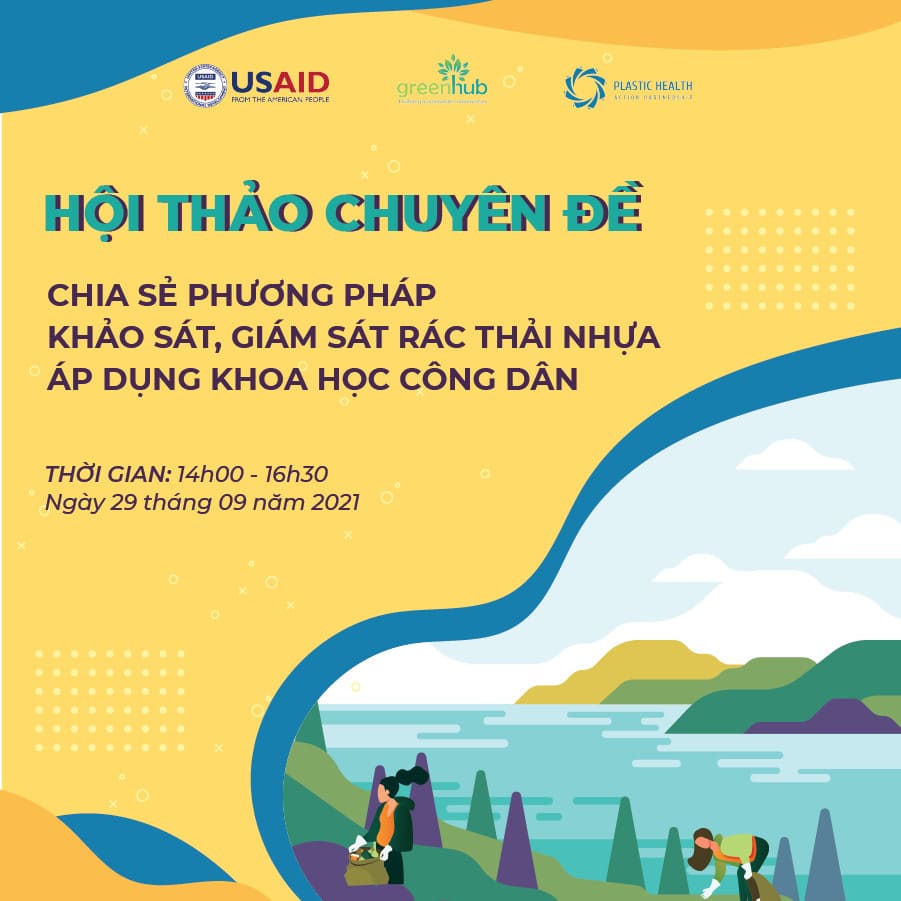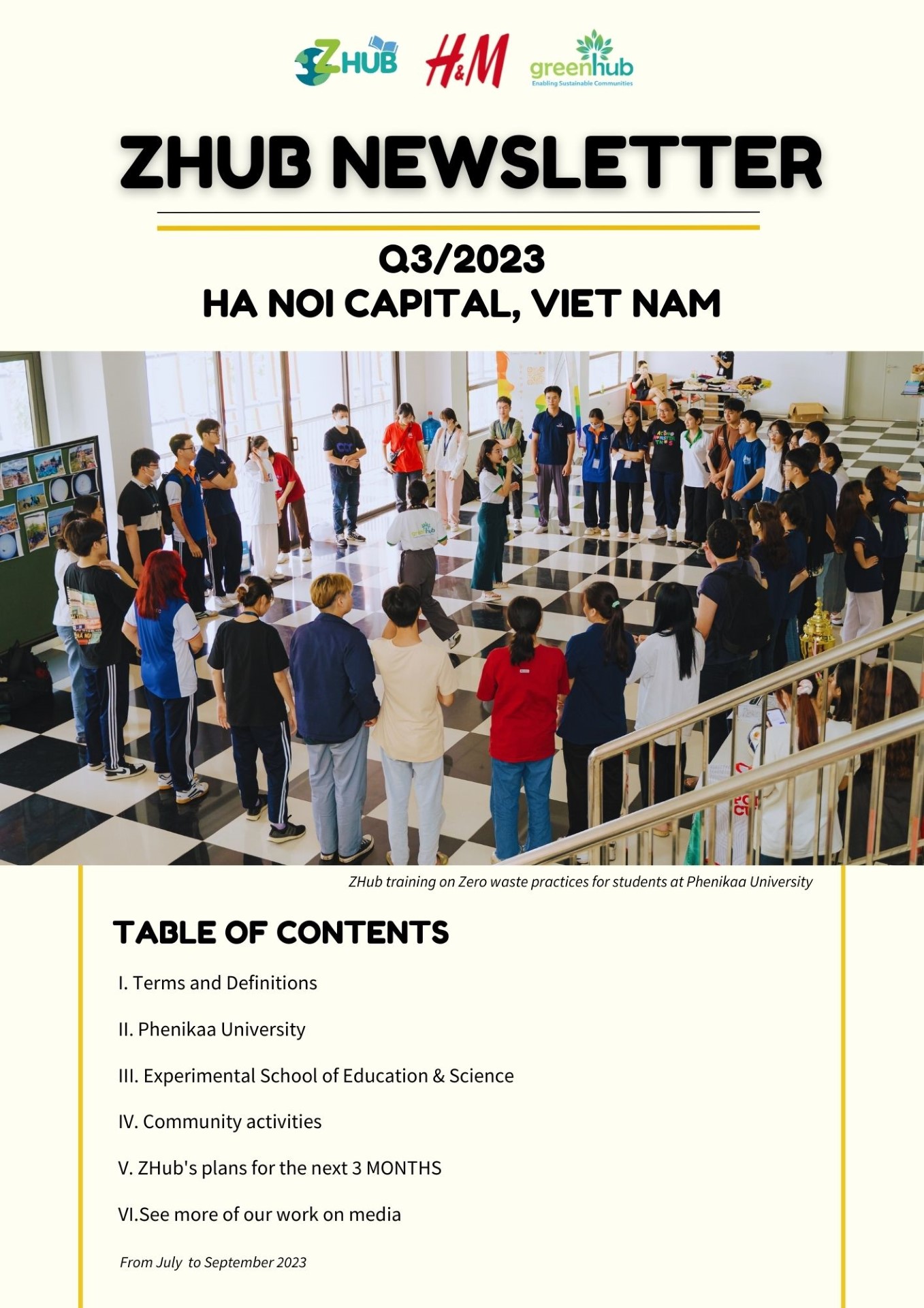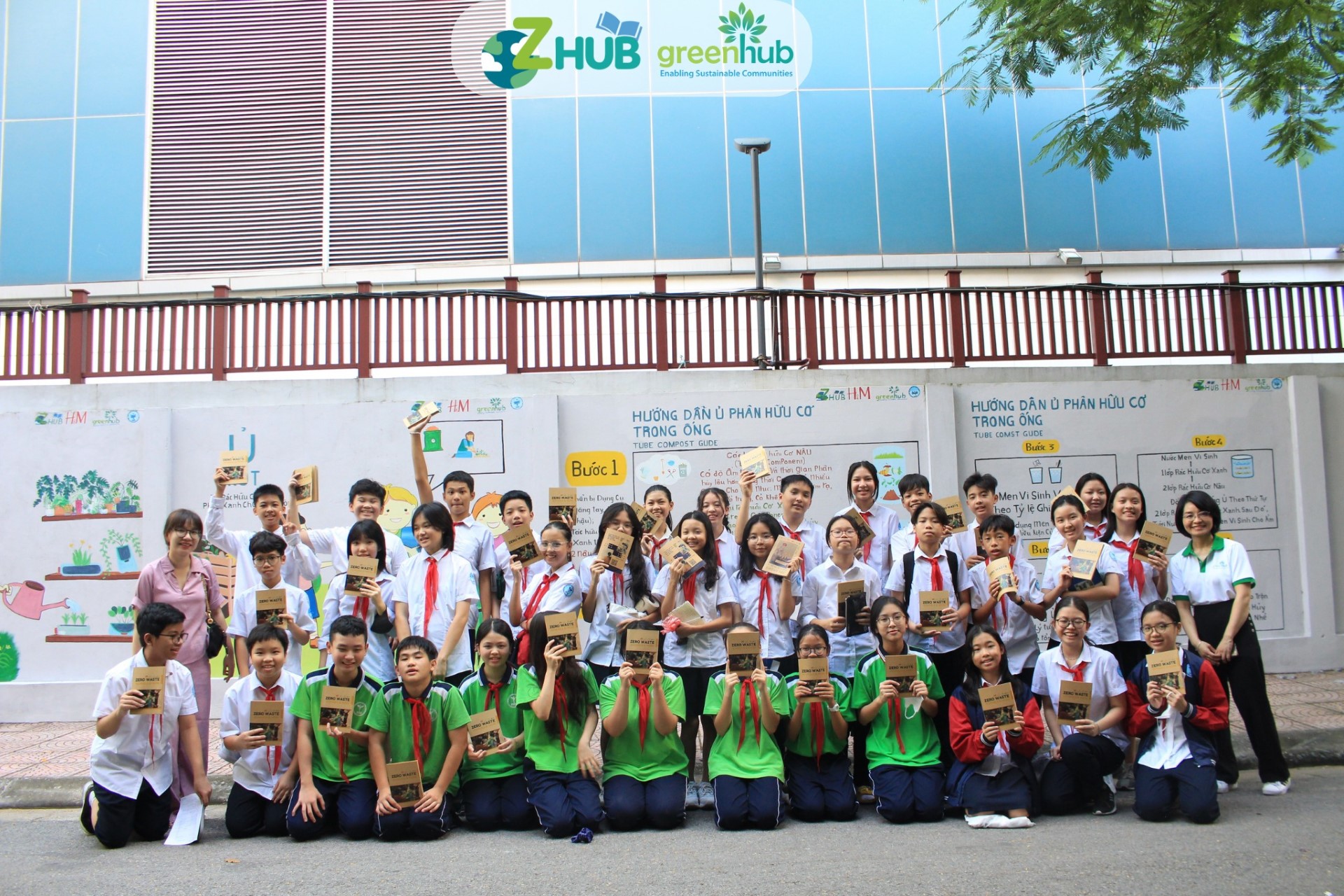
The workshop “Sharing Surveying Methods, Monitoring Plastic Waste Applying Citizen Science” was held on September 29, 2021, to connect parties that share interests in Garbage Monitoring, sharing surveying methods, and monitoring plastic waste in practice in Vietnam, and discussions to agree on survey methods.
Citizen science is being used to monitor plastic waste in rivers, the sea, and on land (in residential areas). The Plastic Health Action Partnership primarily funds the workshop as part of the National Plastics Administration-financed initiative “reducing plastic pollution using local solutions” (LSPP). United States International Development (USAID) and Center for Green Development (GreenHub) with three partners (ISPONRE, HUPH-VOHUN, GIMASYS)
Plastic pollution is quickly becoming one of the most severe issues confronting governments. The usage of plastic products, particularly disposable ones, has significantly affected our country’s ecology and ecosystems, mainly marine resources. Sharing about the Monitoring and assessment programme on plastic litter in the coastal areas of Vietnam that GreenHub has implemented in the recent period, Ms. Ha Ngan Ha – Partnership Coordinator of GreenHub, said: “Gather detailed data to be able to implement suitable solutions, making policy advocacy based on scientific data, that is one of the reasons GreenHub decided to practice citizen science programs.”

Speakers engaged in building and environmental protection were also present: Mr. Bui Le Thanh Khiet – Expert – Leader of the circular economy of plastic waste (ICED); and Mr. Le Anh Duc, Project Manager of Keep Hanoi Clean (KHC).
Sharing about Monitoring and assessment programme on plastic litter in Can Gio, Mr. Khiet gave essential summaries related to the steps in the survey process, including: Selecting a survey location (Determining the 100m survey segment) ); Record conditions (Record survey location information); Conduct survey (In the survey area, marine litter with size >2.5 cm is recorded); Enter the data (Re-enter the collected data) and repeat the survey. He also shared more about the acceptance of the project: “The results we have recorded are quite similar to other studies in the world: Plastic waste accounts for a huge proportion, accounting for 75% of the total waste. collected, sometimes accounting for up to 96% […] In the plastic waste segment, disposable plastic waste accounts for the majority.”
Expressing his views in the workshop, Mr. Duc also shared the goal of KHC’s current Hanoi Province Existing Conditions Assessment (HANPECA) project: “Firstly, we will build a network of environmental teams in 579 wards and communes to conduct assessment and data collection. Secondly, we will work with experts to create baselines and identify pollution hotspots from systematically collected data. Finally, we will support state agencies in the field of environmental management.”
At the end of the workshop, the speakers and guests together discussed the selection of monitoring and assessment on plastic litter in the coastal areas methods applied in Vietnam. Regarding the handling of monitoring data collected after the projects, Ms. Nguyen Thi Thu Trang – Deputy Director of GreenHub, said: “This is a very legitimate concern because it will be challenging without lobbying government agencies. For most monitoring-related programs, GreenHub accompanies its partners, local management agencies, such as the Department of Natural Resources and Environment, including the Sub-Department of Oceans and Islands or the Sub-Department of Natural Resources and Environment. The management agency will be the one to select the site, and after the survey is completed, the statistics will be reported to the management agency. GreenHub has training and guidance on methods and implementation processes that are integrated into the locality. Another point is that when developing the guidelines, GreenHub, together with IUCN, held consultations at the mid-level related to the Directorate of Seas and Islands; one of the monitoring and assessment on plastic litter in the coastal areas methods at the beach has been included in the guiding circular.”


